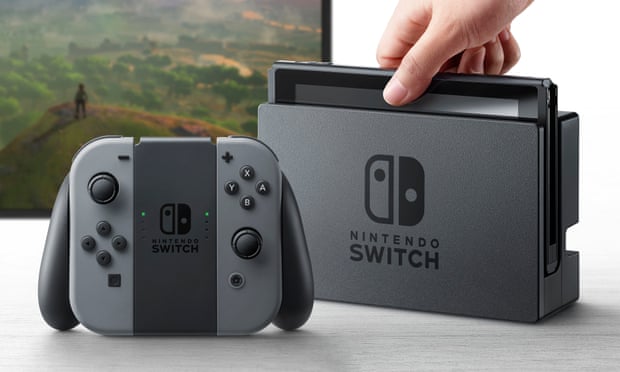
“Never underestimate Nintendo,” runs the maxim, repeated by many a rival video game executive across the decades. By 1991 the company, founded in 1889 to manufacture playing cards, had replaced Toyota as Japan’s most successful company, earning around $1.5m per year per employee. In the early 90s, its earnings exceeded that of all the US movie studios combined. That success filled a war chest on which the company has relied in leaner times – which recently have been frequent.
Nintendo has struggled to match the boisterous success of the Wii console, as well as with its identity as a game-maker. In December, after years of equivocation, it finally sent its Super Mario mascot on to the iPhone (a debut that Nintendo resisted for years. “If we did this,” the company’s late president Satoru Iwata said in 2011, “Nintendo would cease to be Nintendo.”).

Despite criticism over its comparatively high price for a mobile phone game (£9.99), Super Mario Run was downloaded 40m times in four days, and earned a reported $21m. The result will go some way to countering Nintendo’s miserable financial results in early 2016. Poor sales of the disastrously named Wii U (which implied the console was a minor upgrade, or, worse, a U-turn, rather than a new machine) led to an operating loss of ¥5.13bn (£36m) up until June.
All of that, Nintendo hopes, will change in 2017. Scheduled for launch in the spring, the Nintendo Switch is the company’s bid for that hypervalued patch of real estate beneath the television. It is an invention rather than a evolution: a hybrid portable console that people will be able to play on their TV before packing the system’s tablet-like extra screen into a bag to continue playing on the bus. With the Switch, Nintendo has chosen, once again, the road less travelled. While Sony and Microsoft chase technological supremacy with PlayStation and Xbox One, Nintendo has favoured a fidgety design conceit.
It’s a machine that seeks to fit the structure of our contemporary lives, erasing the lines between home and handheld gaming. The latter is an area where Nintendo has particularly lost market share to mobile phones (it’s far more convenient for a parent to pass their iPhone to a fussing child in the back seat of the car than to dig out a DS). With the company’s usual defiance, Nintendo is even turning away from the optical discs typically used for games, plumping instead for cartridges, as used by video game machines throughout the 80s and early 90s.
The past decade has shown that, no matter how ingenious its designs, Nintendo struggles to succeed alone. As soon as other game-makers abandon one of the company’s consoles – as they did en masse early into the Wii U’s life – the machine’s prospects wither. This is where the Switch is most vulnerable. It’s unlikely that third-party publishers will flock to the console with its idiosyncratic specs and demographic. It is likely it will be too expensive for others to tailor their games to.

But Nintendo is not so much an industry competitoras a cohabiter. Nintendo will never try to compete with Microsoft and Sony in the traditional console market as it doesn’t have operating systems, online stores or content portfolios to sell in the same way. It could never take bites out of Sony and Microsoft’s market share, and knows it would lose the technological arms race if it tried.
Nintendo’s more gimmicky approach springs from the company’s winding history as a toy-maker. This kind of mad inventor-like attitude accounts for hits and misses. And while the Wii U was a colossal fail, the Wii and DS handhelds were hits. Switch is a curious proposition that may struggle to find a place for itself, squeezed as it is by consoles and tablets. But it stands out from the identikit crowd (try explaining the difference between a PlayStation 4 and an Xbox One in two sentences), something wild and unexpected.
Iwata was Nintendo’s best-loved president and started at the company as a junior programmer. His fingerprints are all over the Switch. “If we continue down the same path as we have in the past,” he once said, “people may become tired of gaming.”
guardian.co.uk © Guardian News & Media Limited 2010
Published via the Guardian News Feed plugin for WordPress.
@Nintendo flips Switch: will new console make 2017 a winning year?https://goo.gl/Egw8mj











0 comments:
Post a Comment